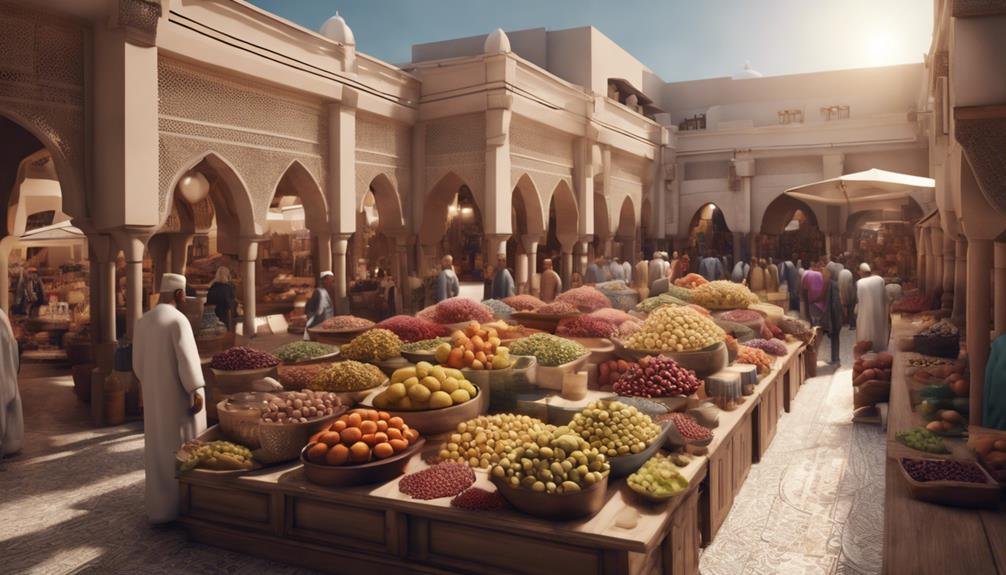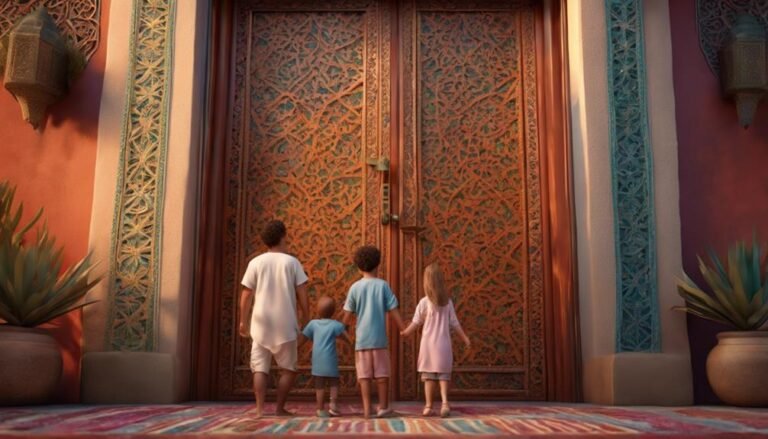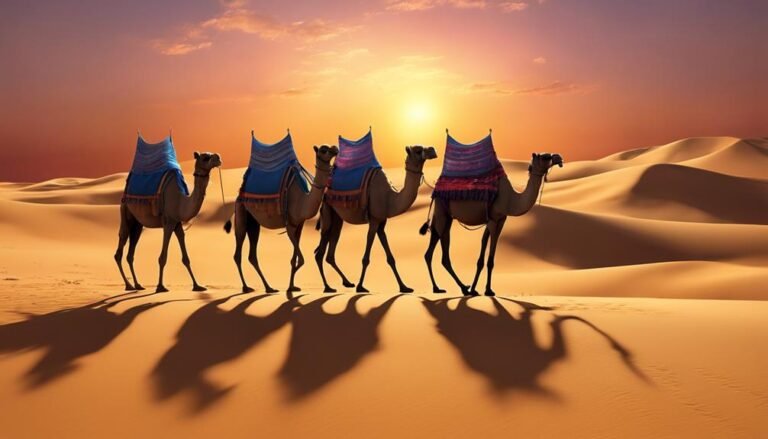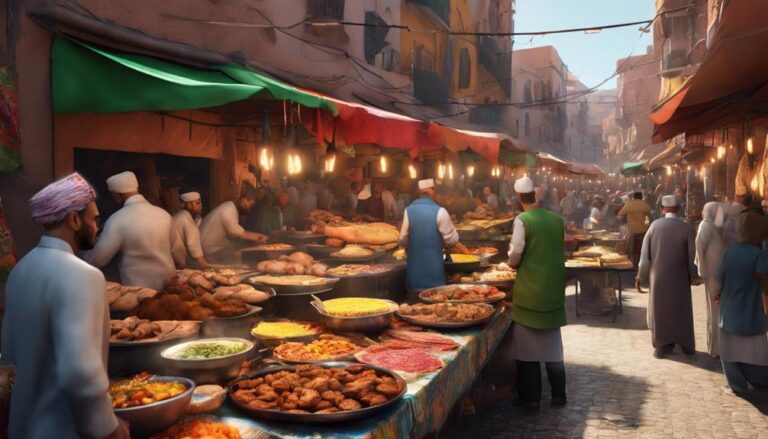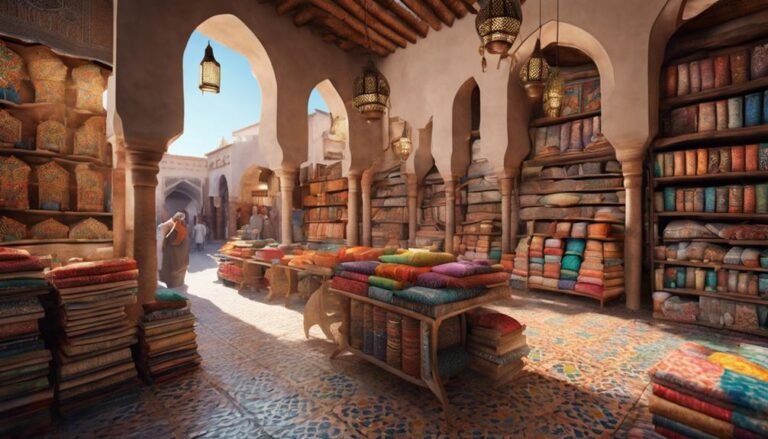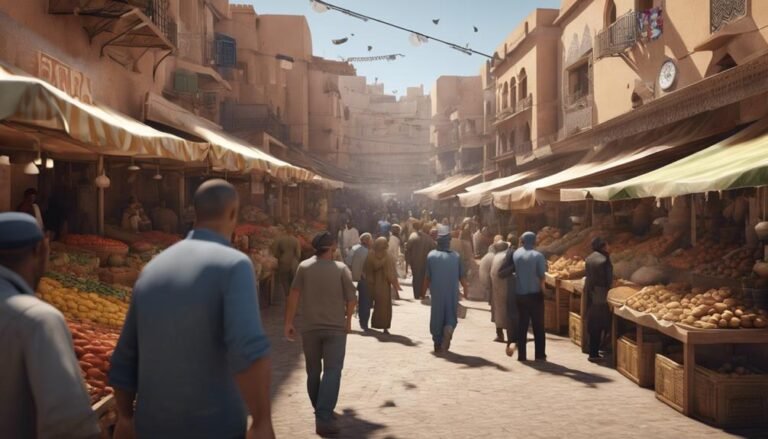Moroccan society has seen remarkable changes in the past decade. Technology has surged, connecting more people online. Gender roles have shifted, with a focus on women empowerment. The economy has made significant progress, creating more jobs and improving infrastructure. Cultural norms are evolving, challenging traditional beliefs for a more inclusive society. Politically, reforms have enhanced democracy and media freedom. These changes collectively reflect a dynamic societal landscape in Morocco.
Key Takeaways
- Increased internet penetration revolutionized connectivity and business reach.
- Evolving gender roles with a focus on women's empowerment and gender equality.
- Economic development progress seen through job creation and infrastructure enhancements.
- Cultural reforms challenging traditional norms, promoting diversity and equality.
- Political changes enhancing democracy, press freedom, and civil society participation.
Technological Advancements
In the domain of technological advancements, Moroccan society has witnessed a transformative shift over the last decade. Internet penetration has notably increased, bringing about a wave of change in how individuals communicate, access information, and conduct business. Mobile devices have played a pivotal role in this evolution, with more Moroccans relying on smartphones for various daily tasks.
Compared to a decade ago, the rise in internet penetration has connected more Moroccans to the digital world, enabling them to stay informed and engaged like never before. Mobile devices have become ubiquitous, providing individuals with a portable gateway to the vast expanse of the internet. This shift hasn't only changed how people socialize but has also revolutionized the way businesses operate, with many now leveraging online platforms to reach a broader audience.
As technology continues to advance, Moroccan society is poised to undergo even more noteworthy changes in the coming years. Embracing these technological advancements will be essential for individuals and businesses alike to thrive in the digital age.
Shifting Gender Roles
The evolution of technological advancements in Moroccan society hasn't only reshaped daily interactions but has also prompted a reevaluation of traditional gender roles, reflecting a dynamic shift towards more inclusive societal norms. Women's empowerment has been a key focus in this transformation, challenging long-standing traditional norms that often limited women's roles to the domestic sphere. As a result, there's been a noticeable progress towards greater gender equality, with women increasingly participating in various aspects of public life previously dominated by men.
In contrast to the past where societal expectations placed strict boundaries on gender roles, there's now a growing acceptance of diverse expressions of gender identity and a recognition of the importance of dismantling stereotypes. This shift has led to a more nuanced understanding of gender dynamics, fostering a more equitable environment where individuals are encouraged to pursue their aspirations regardless of gender. While there's still progress to be made, the changing landscape of gender roles in Moroccan society signifies a positive step towards a more inclusive and egalitarian future.
Economic Development
Amidst the evolving societal landscape in Morocco, significant strides have been made in fostering economic development, paving the way for a more prosperous and sustainable future. Over the past decade, the country has witnessed remarkable progress regarding job creation and infrastructure improvements.
Job creation has been a focal point, with initiatives aimed at reducing unemployment rates and providing opportunities for the growing workforce. The implementation of various economic policies and programs has led to the establishment of new businesses and industries, offering employment prospects to many Moroccans.
Furthermore, infrastructure improvements have played a vital role in enhancing the overall economic environment. Investments in transportation, energy, and telecommunications haven't only facilitated smoother business operations but have also attracted foreign investments, boosting the economy.
Comparatively, the economic landscape in Morocco today reflects a more dynamic and competitive market, with a stronger emphasis on sustainable growth and development. These advancements in job creation and infrastructure underscore the country's commitment to fostering a robust economy for its citizens.
Cultural Reforms
Significant shifts in economic dynamics have set the stage for a reevaluation of traditional cultural norms and practices in Moroccan society. This reevaluation has led to noticeable cultural reforms, particularly in the domains of gender equality and social norms.
Over the past decade, Moroccan society has seen a gradual but significant transformation in its attitude towards gender equality. Women are now increasingly participating in the workforce, challenging traditional gender roles, and advocating for their rights. This shift is reshaping societal perceptions and paving the way for a more inclusive and equitable society.
Furthermore, there's been a visible push to challenge and reform outdated social norms that perpetuate discrimination and inequality. Moroccan society is actively engaging in dialogues to address issues such as patriarchy, stereotypes, and biases that have long hindered progress towards a more progressive and open society. These cultural reforms reflect a growing awareness of the need for change and a willingness to confront deep-rooted issues in order to foster a more diverse and accepting societal landscape.
Political Changes
In the midst of shifting societal dynamics, political changes in Moroccan society are becoming increasingly apparent and impactful. Over the last decade, Morocco has witnessed significant government reforms aimed at enhancing democratic progress. Initiatives such as the constitutional changes of 2011, which granted more powers to the parliament and the Prime Minister, have marked a shift towards a more inclusive and transparent political system.
Comparatively, these political changes have led to a more active civil society, with increased participation in political processes and decision-making. The reforms have also paved the way for greater press freedom and a more pluralistic media landscape, allowing for diverse voices to be heard.
However, challenges remain as the country navigates through these transformations. While there have been steps towards democratic progress, some critics argue that more substantial reforms are needed to ensure genuine political inclusivity and transparency. As Moroccan society continues to evolve, the impact of these political changes will unquestionably shape the country's future trajectory.
Conclusion
To sum up, over the past decade, Moroccan society has undergone a transformation akin to a chameleon changing its colors. Technological advancements have reshaped daily life, shifting gender roles have challenged traditional norms, economic development has brought new opportunities, cultural reforms have sparked creativity, and political changes have opened up new avenues for progress.
Like a vibrant tapestry being rewoven, Morocco has evolved into a dynamic and multifaceted society, embracing change while holding onto its rich heritage.

The Editorial Team is a passionate group of Morocco enthusiasts dedicated to sharing the beauty, culture, and wonders of this captivating country. With diverse backgrounds and a deep love for travel, we strive to bring you engaging and informative content that inspires your Moroccan adventures. From uncovering hidden gems and sharing local insights to exploring mouthwatering cuisine and showcasing the vibrant lifestyle, our team is committed to providing you with valuable resources and exciting stories that enhance your exploration of Morocco. Join us on this journey as we celebrate the rich heritage and unforgettable experiences that make Morocco truly special.

